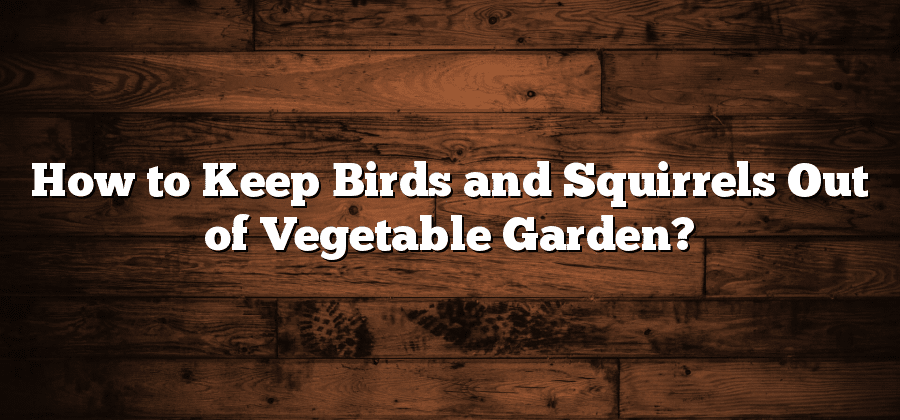Understanding Bird and Squirrel Behavior
Birds and squirrels are fascinating creatures that exhibit unique behaviors, which can sometimes be a delight to observe. Understanding their behavior is crucial in effectively managing their presence in our gardens or outdoor spaces.
Birds, for example, have various feeding habits that can help us determine how they interact with our environment. Some species are seed eaters, while others rely on nectar, insects, or even small animals for sustenance. By understanding their preferred food sources, we can make more informed decisions about the types of feeders or plants to have in our gardens. Additionally, observing their flocking patterns and nesting behaviors can provide valuable insights into their daily routines, allowing us to better protect and coexist with these magnificent creatures.
Squirrels, on the other hand, are known for their agility and resourcefulness. They are skillful climbers, capable of navigating trees and leaping from branch to branch with ease. These acrobatic creatures feed on a wide range of foods, including nuts, seeds, fruits, and even bird eggs. By understanding their foraging behavior, we can identify potential sources of attraction in our outdoor spaces and take appropriate measures to mitigate their presence. Furthermore, learning about their nesting habits and preferred sheltered spots can help us create a more squirrel-resistant environment.
Identifying Common Bird and Squirrel Attractants
Birds and squirrels are fascinating creatures that share our outdoor spaces. However, their presence can sometimes lead to unwanted consequences. Understanding the common attractants for these animals is crucial in effectively managing their behavior in our gardens.
For birds, one of the main attractants is food sources. Bird feeders, bird baths, and seed spread on the ground can all entice these colorful creatures to visit our yards. Different species of birds have specific preferences, so it’s important to research the types of food that are most appealing to the birds you want to attract. Additionally, fruit-bearing trees and bushes can also be alluring to birds, as they provide a natural source of sustenance.
As for squirrels, their main attractant is easily accessible food. Bird feeders are not only a favorite dining spot for birds but also a buffet for squirrels. They have a knack for finding clever ways to outsmart squirrel-proof feeders, so it’s important to choose feeders that are specifically designed to keep squirrels out. Also, fallen fruits and nuts from trees can be attractive to squirrels, so regular yard maintenance and cleaning can help minimize their presence.
By identifying and managing these common attractants, we can create a more harmonious environment for both birds and squirrels while minimizing the potential problems they can cause in our gardens.
Creating Physical Barriers for Your Garden
Gardening enthusiasts often encounter challenges when it comes to protecting their gardens from the curious animals like birds and squirrels. One effective method to keep these critters away is by creating physical barriers. These barriers act as a deterrent, preventing the animals from accessing your precious plants and vegetables.
One common technique for creating barriers is the use of fences or netting. By constructing a fence around your garden, you establish a clear boundary that birds and squirrels are less likely to breach. Opt for fencing with small openings to prevent birds from squeezing through. Additionally, installing netting over your plants can effectively keep birds and squirrels from feasting on your harvest. Make sure the netting is securely attached to avoid any gaps that might allow access.
Installing Bird and Squirrel Deterrents
Birds and squirrels can be persistent visitors to our gardens, often causing damage and disruption to our plants and delicate flowers. Installing bird and squirrel deterrents can help to deter these animals and protect your garden. There are several effective methods available for creating a safe and unappealing environment for birds and squirrels.
One popular deterrent is the use of netting. By covering vulnerable areas, such as fruit trees or vegetable patches, with bird netting, you can prevent birds from accessing these tempting food sources. Similarly, using squirrel netting around bird feeders or trees can help to keep squirrels at bay. It is important to ensure that the netting is secured tightly and that there are no gaps or loose ends, as birds and squirrels are resourceful animals and can find their way through any openings.
Utilizing Scare Tactics and Repellents
The use of scare tactics and repellents can be an effective way to deter birds and squirrels from your garden or property. Scare tactics involve using visual or auditory stimuli to make the birds and squirrels believe that there is a threat present. For example, hanging shiny objects or placing reflective surfaces in your garden can startle the birds and squirrels and discourage them from coming back. Similarly, using sound deterrents such as wind chimes, bells, or ultrasonic devices can create a hostile environment for these animals.
Additionally, repellents can play a crucial role in keeping birds and squirrels away. There are a variety of commercial repellents available that are specifically designed to deter these animals. These repellents often contain natural ingredients or substances that are known to be unpleasant to birds and squirrels, such as garlic or capsaicin. It is important to follow the instructions provided by the manufacturer when using these repellents, and to regularly reapply them as needed.
By implementing scare tactics and utilizing repellents, you can greatly reduce the presence of birds and squirrels in your garden or property. Remember, consistency is key when it comes to deterring these animals, so make sure to choose tactics and repellents that will work best for your specific situation. With patience and persistence, you can create an environment that is less attractive to birds and squirrels, allowing you to enjoy your garden without the unwanted guests.






